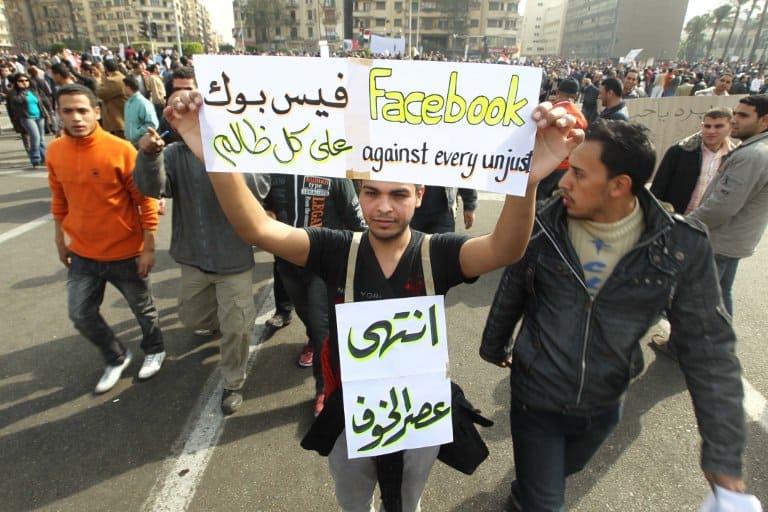Egyptian activist Alaa Abdel Fattah, a key figure in the country’s 2011 revolution, began a hunger strike in prison over the weekend, his mother Laila Soueif said Monday.
“He refuses to eat, because his prison conditions must change,” Soueif told AFP, adding that her son has been placed under “heavy supervision, in solitary confinement”.
“He is not allowed books or exercise, and this prison is known for not respecting any laws,” she continued.
Abdel Fattah was sentenced in December to five years in prison after he was convicted along with two others of “broadcasting false news”.
He had already been in pre-trial detention in Cairo’s Tora prison since September 2019 before the sentencing.
Abdel Fattah’s sister, Mona Seif, announced the hunger strike in a Twitter post earlier on Monday.
“Today was @alaa’s visit, he told me he is on hunger strike since 1st day of Ramadan, Saturday,” she wrote.
Seif added that he “returned all food we brought him. Only took medication, tea and personal hygiene products”.
Abdel Fattah has spent the better part of the past decade behind bars, having also been arrested under former presidents Hosni Mubarak and Mohammed Morsi.
His latest arrest came in September 2019 in the wake of rare protests called for by an exiled dissident businessman against President Abdel Fattah al-Sisi.
Rights groups say Egypt is holding some 60,000 political prisoners, many facing brutal conditions and overcrowded cells.

